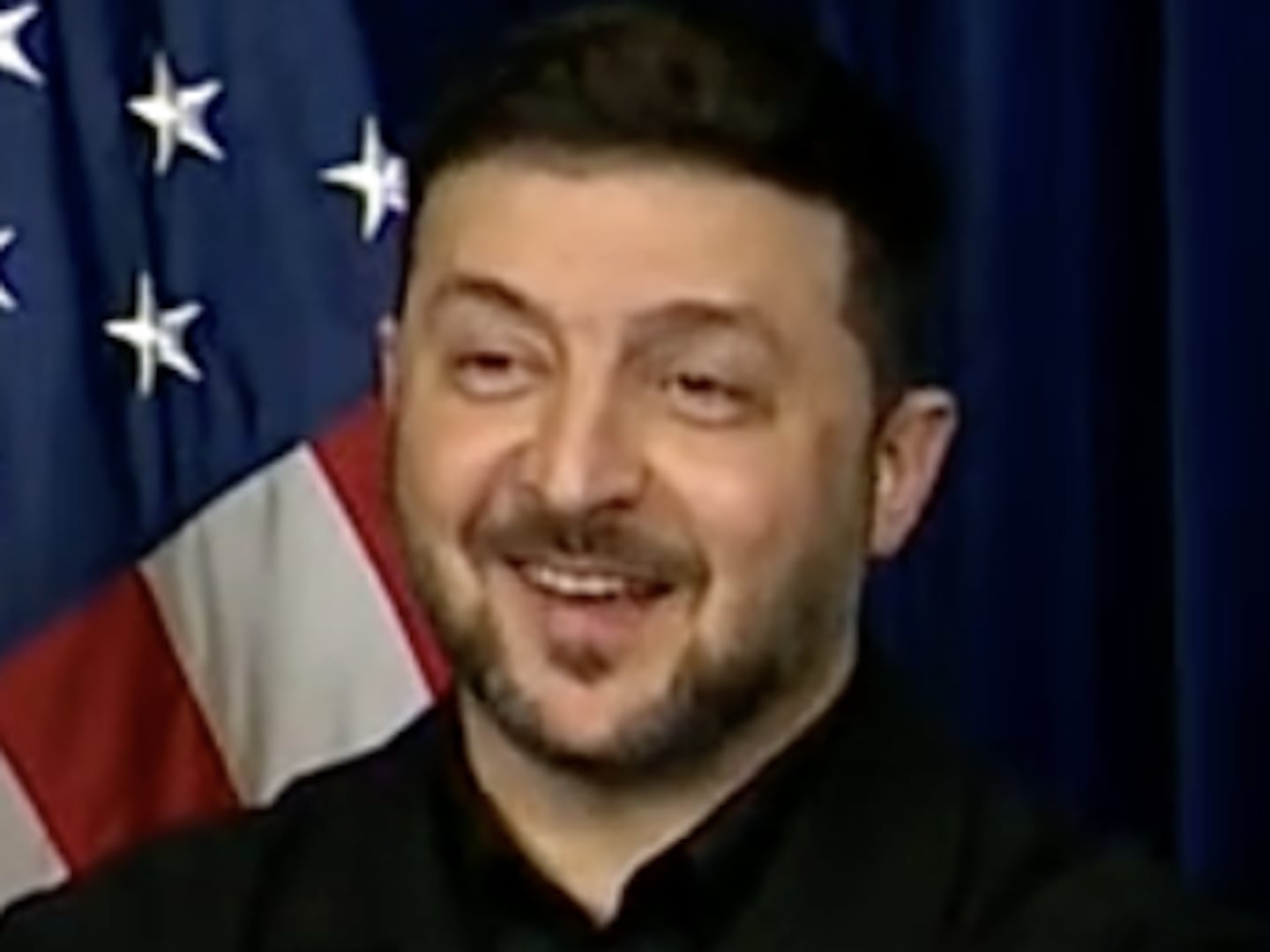Two English misfits found in the Second World War the making of their oeuvre. For Winston Churchill, the Nazi threat gave a born writer the raw material of a lifetime. History, speeches, memoir, essays, the Nobel Prize.... in Churchill’s bibliography, the war is the gift that went on giving.
For Ian Fleming, working just a few hundred yards from the prime minister, in Room 39 of the Admiralty, fighting the Nazis was a godsend. This restless loner had signed up with British naval intelligence soon after the fall of France. Secret operations and covert ruses de guerre gave the maverick Old Etonian with a penchant for sado-masochistic sex, a raison d’etre and then his inspiration. Before 1940, Fleming had been a failed army officer, a would-be journalist and “the world’s worst stockbroker”. By the time the war was over, he was incubating the literary myth—James Bond—that would sustain him up to his premature death in 1964, coincidentally the same year as Churchill.

Today, sixty years after the publication of Casino Royale, Fleming is hardly less of a legend than Churchill, while his hero is an equal icon of Britishness. When HRH Elizabeth II morphed into James Bond in the skies over the London Olympics, fact and fiction achieved the kind of satisfying imaginative cocktail that Fleming unquestionably dreamed of. Andrew Lycett’s excellent biography (first published in the UK in 1995, and now reissued by St Martin’s Press, New York) describes how, coming late to authorship, and competitive with his more successful brother Peter, the forty-something Ian Fleming micro-managed every detail of publication, even suggesting possible cover designs.
Perhaps it paid off. At the time of his death, Fleming had pulled off a rare treble in English literature. He was rich, famous, and critically acclaimed. The year before his fatal heart attack, Fleming was earning more than £100,000 (several million at today’s prices), with close to 40 million Bond books in print, in many editions, having also become the darling of the London literary press and British reading public alike.
Not since Conan Doyle had a popular writer hit such a nerve. Fleming himself wrote that “the target of my books [lies] somewhere between the solar plexus and the upper thigh”. 007 had become a classic of postwar fiction with an assured place in the English canon. When Fleming died, this remarkable achievement was sustained, and even enhanced, by that sequence of films, starring Sean Connery—From Russia With Love, Goldfinger, Thunderball etc.—which have since passed into international folklore. Someone, indeed, has calculated that about half the world’s population has seen a James Bond film.
The Fleming estate has squeezed maximum returns from its copyrights, possibly inspired by the limitations of Fleming’s oeuvre. On his death, he left just thirteen Bond titles, from Casino Royale to The Man with the Golden Gun. Any serious future earnings would lie in exploiting the further adventures of 007. The first faux-Fleming assignments went to writers such as Kingsley Amis (writing as “Robert Markham”) and John Gardner. Now, one of Britain’s most distinguished novelists, William Boyd, has come up with another Bond thriller, entitled Solo.

Fleming is a hard act to follow. The first Bond novels, especially Casino Royale, are wonderfully readable adventure stories in the tradition of John Buchan and Dornford Yates, with beautiful Russian spies, and some memorable scenes of gambling and torture. From the moment 007 says “My name is Bond. James Bond,” the tight-lipped, world-weary, and murderously handsome special agent effortlessly assumes the mantle of those super-cool pre-war heroes Richard Hannay and Bulldog Drummond.
Do not despair. Boyd has immersed himself in Fleming’s literary biography to write Solo. His text relishes Fleming’s love of high living, luxuriates in Bond’s passion for a good breakfast, and supplies the agent with the licence to kill with an intoxicating menu of champagne, cocktails, and tipples. To add to the entertainment—Boyd is on the side of a lively read—he also provides his own variant on 007s (“stirred but not shaken”) martini. He has also placed the action on home ground, cleverly locating the first half of Solo in a world he knows well. The imaginary west African republic of Zanzarim is a perfect setting for the opening exposition of the plot.
Research, however, can only take the would-be Fleming so far. A careful reading of Lycett’s biography suggests that Fleming’s life and work are braided together in ways that are inimitable. Written in the 1950s, the best Bond novels (From Russia, With Love stands out) are a strange elegy to a doomed world of imperial grandeur and, at the same time, a vanity mirror to the sexually confused life of their author.
Even Fleming’s relationship to his art is ambiguous. Lycett stresses the “chocolate sailor’s” commitment to his fiction. But Fleming himself also joked that he began Casino Royale to take his mind off his forthcoming marriage to Anne Rothermere. Stirred into this pre-nuptial cocktail of 007s adventures, the spicy ingredients of espionage, global politics, and sado-masochism achieve a rare kind of literary adult escapism.
Boyd understands this, and is not too snooty (a problem with some of his predecessors in the hot seat) to resist the temptation of cheap thrills. Solo, indeed, never fails to keep the reader on the edge of his chair (this is unequivocally a boys’ book) in a yarn that’s very much a game of two halves. At first, loyal to M and Miss Moneypenny, Bond accepts his mission to the war-torn west African state of Zanzarim, and his quest to confront the war lord Brigadier Solomon “the Scorpion” Adeka. This he pursues with many narrow squeaks and plenty of sex until the gorgeous Blessing Ogilvy-Grant (not her real name) plugs him at close range with an automatic pistol, leaving 007 “in the spreading pool of his own blood.”
That should be the end. In fact, executing a brilliant suspension of disbelief, Boyd patches Bond up and sends him, now burning with rage and revenge, into action in America, on the trail of villainous Jakobus Breed. En passant, some of Fleming’s stalwarts, notably the CIA man Felix Leiter, make well-judged cameo appearances. This second half is all about Bond “going solo”. What follows is a master-class of action narrative. In barely 100 pages, Boyd cleverly wraps up the plot, eliminates the villain, elucidates the mystery, and sends Bond back home to the arms of another woman, Bryce, in west London. Inevitably, 007 ends up alone before—a nice, concluding touch—disappearing into the slipstream of a Sunday morning.

Some English readers place Fleming’s Bond as one of the great post-war British fictional archetypes. Once again—another obstacle for Mr. Boyd—the reader bumps into the autobiographical thread woven into Fleming’s gaudy prose. On closer examination—here, Lycett is invaluable—007 himself is a weird bird who derives many of his qualities from his author’s fantasy life. A cat who walks alone, he revels in having “no acquaintances”, just a few treasured male friends, and a bevy of adoring, but untrustworthy, women. As with Graham Greene, Fleming’s near contemporary, boredom is a vice, danger the watchword. The face he presents to the world is “ironical, brutal and cold”, though deep down Bond is, like many former public schoolboys, a Peter Pan with deeply romantic fantasies.
In 2013, even with William Boyd in charge, Bond remains hard to like. He lives for a world of snobbery and violence that is fast, glamorous and expensive, at the high end, or sinister, spine-chilling and villainous. The archetypes of evil Bond vanquishes are all world-class crooks. Dr No -- the lineal descendant of Fu Manchu—is the epitome of evil. Goldfinger is simply the richest and baddest man in England. Blofeld is described as “the biggest crook in the world.” In Solo, Boyd certainly relishes his rendezvous with Solomon “the scorpion” Adeka, but has to pull a brilliant narrative twist to satisfy the twenty-first century reader. We want a more complicated backstory for Fleming’s monsters.
Boyd must wrestle with some other difficulties, too. The universe of cruelty and menace inhabited by Bond’s Manichean adversaries was shaped by a quasi-imperial map of the world that’s now disappeared. Goldfinger et al. are not to be found in England’s green and pleasant land but in the corrupt and steamy outposts of Abroad, the place we know to be inhabited by foreigners. Here, Fleming’s racism and xenophobia becomes intricately linked to his innate sense of imperial entitlement. Members of an upper class whose time is up, Fleming (and Bond) treat foreigners as objects of suspicion and disdain. Germans, Blacks, Jews, Russians, Japanese and (creepiest of all) Koreans: none is to be trusted; all speak funny; and each in turn is to be vanquished by patriotic British steel.
Bond’s Britishness is Fleming’s—stoic, right-wing and effortlessly chauvinist—and Boyd is too modern, too humane a writer to aspire to that competition. But he’s a brilliant storyteller and the interwoven plots and surprises of Solo are often superior to Fleming’s own narrative stunts. Finally, however, when 007 goes “solo”, the author and his hero do become one. Boyd’s brutal elimination of the gorgeous African love-interest, Blessing, exhibits all the icy ruthlessness of his master. Job done.






